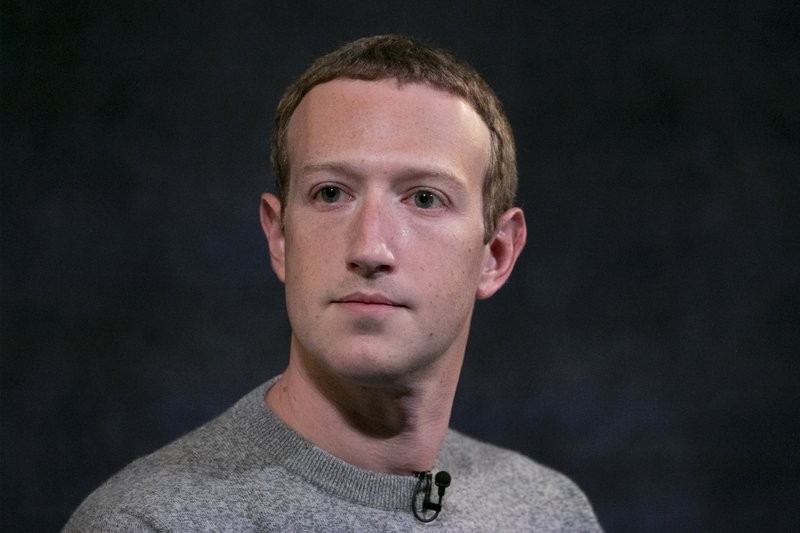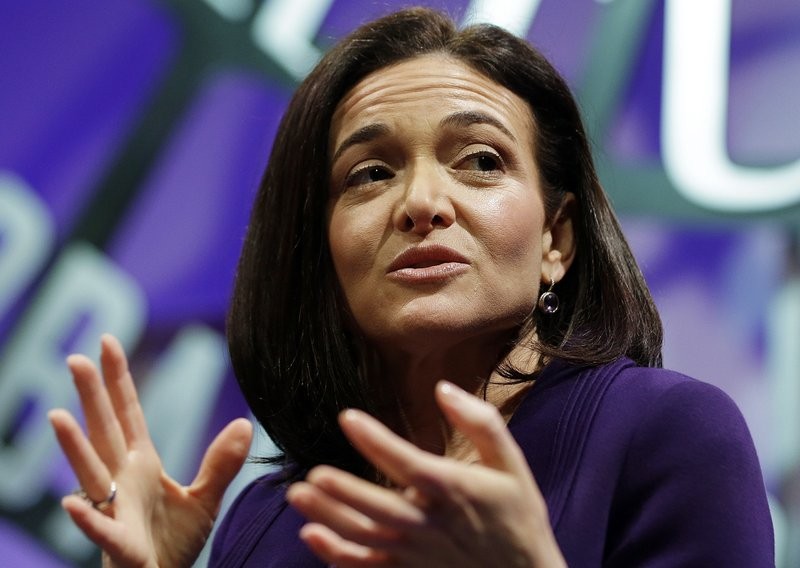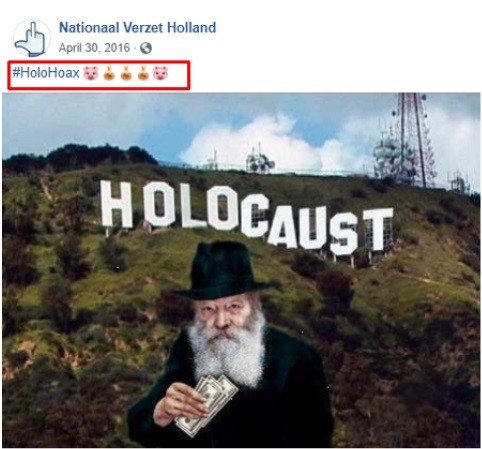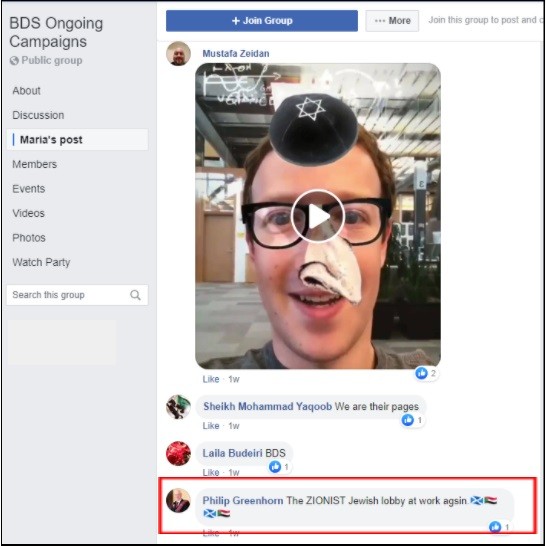Getting your Trinity Audio player ready...
In an open letter dated August 7 to the senior officials at Facebook, 128 nongovernmental organizations called on the social media giant to adopt the International Holocaust Remembrance Alliance’s Working Definition of Anti-Semitism.
“Will Facebook take responsibility and move toward removing the scourge of anti-Semitism from today’s most important public square?” the letter states.
7 View gallery


Anti-Semitic image on Facebook alleging a connection between Jews and coronavirus
(Photo: Screenshot )
With over 2,000 anti-Semitic incidents in 2019 according to the Anti-Defamation League, hatred specifically toward Jews is a growing problem.
Tel Aviv University’s Kantor Center for the Study of European Jewry also noted higher rates, with an 18% increase in “major violent cases” on the year before.
The AMCHA initiative, a nonprofit organization fighting anti-Semitism on university campuses, documented 648 incidents in 2019 involving anti-Semitic speech and actions aimed at Jewish members of the community, up from 334 in 2015.
A major contributor to this problem is social media platforms, which are used as an instrument to incite violence and activists and groups feel enough is enough.
The coalition of groups is hoping to persuade Facebook that adopting the IHRA definition is one way to keep the protections they enjoy under the U.S. Communications Decency Act.
The law is the main grounding for online free speech as it does not hold social media companies responsible for what outside parties write on their platforms.
U.S. President Donald Trump signed an executive order in late May asking government officials to consider curtailing parts of the code.
The missive comes after Facebook's Chief Operating Officer Sheryl Sandberg said last month that the social media platform “has to get better at finding and removing hateful content.”
But the signatories say her statement is too broad and needs to specifically address anti-Semitism in order to effectively combat and remove speech that incites violence.
“‘Hate speech’ is a big word. You have to define it and say to what degree [a given statement] constitutes it,” says Dr. Dafna Porat, head of Tel Aviv University’s Kantor Center and a signatory to the letter.
Porat argues that this is where the IHRA clarifications are particularly useful.
“By adopting a definition, you have a tool to define what anti-Semitism is and thereby have a standard for taking off such speech, which the public can also [use to] hold Facebook accountable,” she says.
Anti-Semitic content is common on Facebook, and a number of studies such as Andre Oboler’s 2013 book Recognizing Hate Speech: Antisemitism on Facebook, have attempted to document and measure the depth of the problem.
Some examples: A cartoon in the “Goyim” Facebook group depicts the targeted shooting of a stereotypically hook-nosed, money-grasping Jew, with the caption in Spanish “la venganza de los goyim” (revenge of the goyim [non-Jews]); a message in the “Palestinelandsociety” Facebook group claims that Israel is “committing the longest ongoing holocaust in the history of mankind”; and a video by the “Anti New World Order” group claims that the Rothschild family has caused every modern war because they want to take over foreign nations’ central banks to make more money. The video has been viewed around 75,000 times.
“Having seen how dangerous online anti-Semitism can be, I’m thrilled that so many organizations are finally taking a stand and urging Facebook to address the unique forms of modern anti-Semitism we see today. Not to censor speech, but to help educate the public about what is and isn’t anti-Semitism,” says Emily Schrader, research fellow at the Tel Aviv Institute and one of the organizers of the campaign.
According to the FBI statistics, in 2018 Jewish people and institutions were the target of 57.8% of hate crimes in the U.S. motivated by religious bias. This is the most recent year for which data is available.
The signatories also contend that anti-Semitism is too entrenched to be fought by law enforcement and nongovernmental organizations alone.
7 View gallery
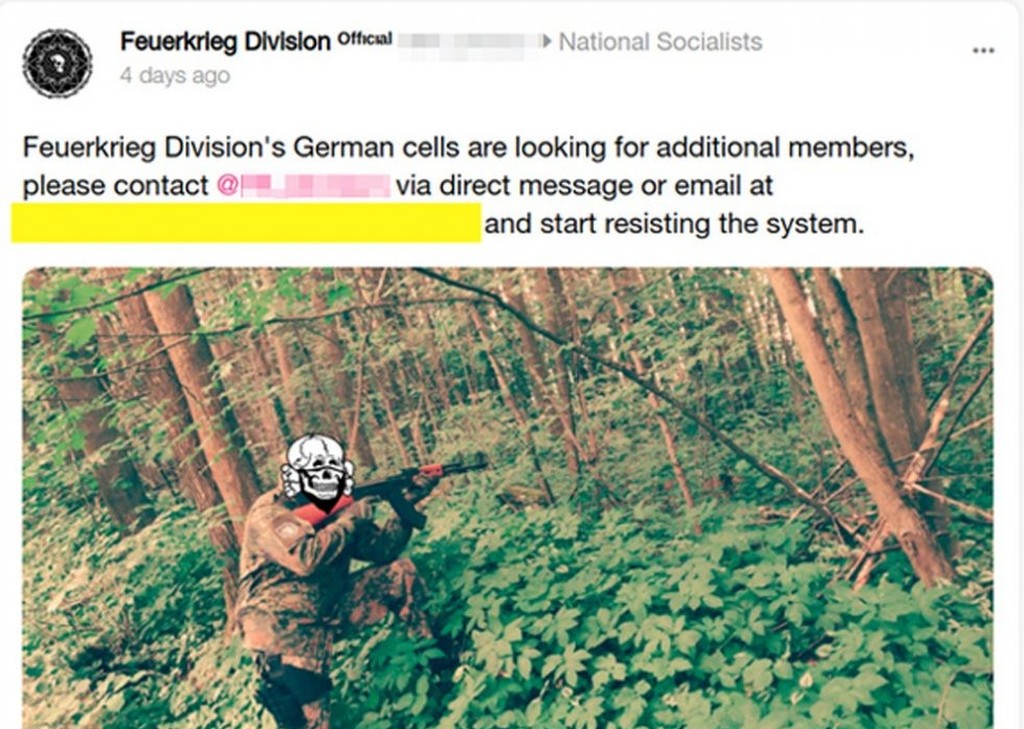

A Facebook post by Feuerkrieg Division, a far-right Neo-Nazi group, shows members training
(Photo: Facebook)
“We cannot deal alone with this tsunami of hate which emanates from far-right neo-Nazis to far left-wing progressives, to Farrakhan followers, to Islamists,” says Rabbi Abraham Cooper, the associate dean and director global social action agenda of the Simon Wiesenthal Center and another signatory to the letter.
The novel coronavirus has only made the already growing anti-Semitism worse.
“A few weeks before the pandemic struck the U.S., I met with three top NYPD officials to express our alarm over the violent hate crimes targeting New York area Jews. When asked what had changed in the last five years, they replied simultaneously ‘social media,’" Cooper says.
“During these past four months, because of our lockdowns and isolation, social media’s domination on all aspects of life has skyrocketed. Anti-Semites, conspiracy promoters, racists and terrorists’ enablers have flocked to social media to market their hate into the mainstream, to inspire lone-wolf attacks and to demonize Jews and Israel,” he says.
“B’nai Brith Canada is proudly joining the campaign to urge Facebook to adopt the IHRA definition of antisemitism. We have long considered this definition the best barometer for determining when something has crossed the line from legitimate discussion to toxic hatred,” says Michael Mostyn, the Jewish organization’s CEO.
“For too long, the realm of social media has been a hotspot for the spreading of hatred and misinformation, in ways that have often had devastating real-world consequences,” he says.
“By adopting the IHRA definition, Facebook will have a clear guideline from which to begin to address this – and can set the right example for other social media giants facing similar challenges.”
B’nai Brith Canada is a signatory to the letter.
The IHRA defines anti-Semitism as a “certain perception of Jews, which may be expressed as hatred toward Jews. Rhetorical and physical manifestations of antisemitism are directed toward Jewish or non-Jewish individuals and/or their property, toward Jewish community institutions and religious facilities.”
The definition is followed by eleven examples of anti-Semitism, seven about Jews specifically and four about Israel.
The IHRA definition was adopted in 2016 by 31 countries. Now close to 40 have embraced it.
On August 10, Mayor Jeff Lehman of Barrie, Ontario, removed a proposal for the city council to accept the IHRA definition. Major cities like Montreal and Vancouver have also tried and failed to officially embrace the organization’s guidelines.
However, the definition of anti-Semitism is still hotly debated.
“This definition has its opponents. … Some are not happy with the wording or with some of the examples given along the definition,” Tel Aviv University’s Porat says.
“The four examples where anti-Zionism is anti-Semitism are very much under debate because there are those who claim that anti-Zionism cannot be anti-Semitism in any case.”
Examples of this kind of anti-Semitism include equating Israeli government actions to those of the Nazis and blaming all Jews for Israeli leaders’ actions.
Article written by Tara Kavaler, reprinted with permission from The Media Line


